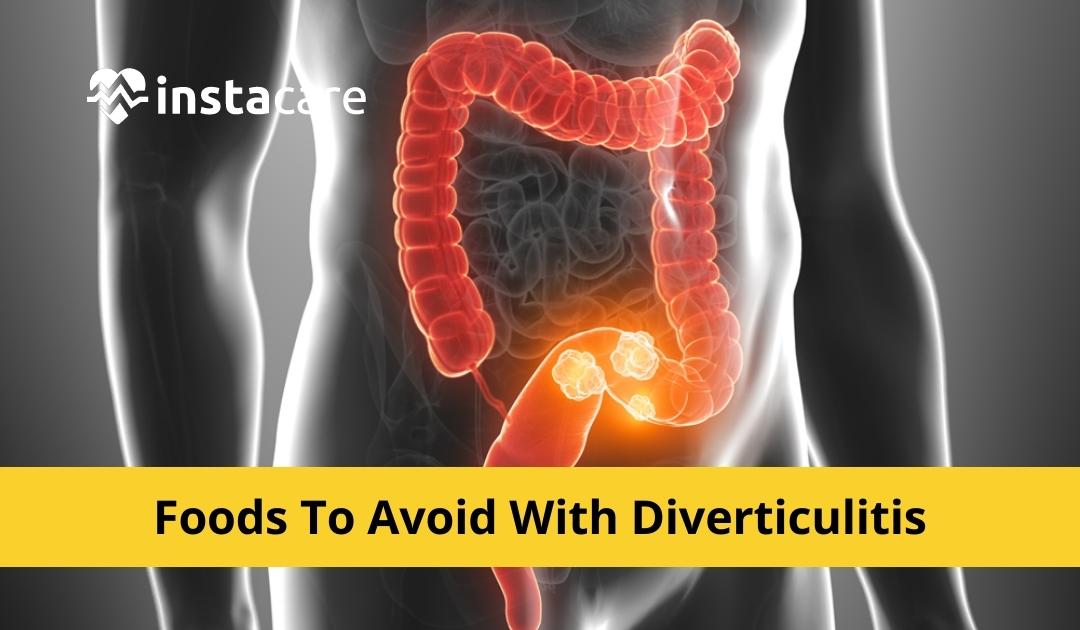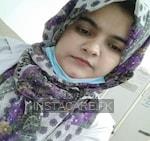If you've been diagnosed with diverticulitis, it's likely that your doctor has suggested some dietary changes. It's important to know which foods are best avoided when dealing with this digestive condition so you can best manage your symptoms and help keep flare-ups in check. From hotly contested items like nuts and popcorn to more unexpected suspects like dried fruit and tomatoes, here are 10 key foods to avoid if you have diverticulitis.
What Is Diverticulitis?
Diverticulitis is a digestive disorder that affects the large intestine. It occurs when small pockets in the lining of the colon become inflamed or infected. Foods commonly linked with this condition are nuts, seeds, popcorn, and other high fiber foods like vegetables and fruits which tend to get stuck in these pouches. Therefore, it is important to avoid such foods for those who are suffering from diverticulitis. Additionally, staying hydrated and taking antibiotics can help alleviate symptoms. Though Diverticulitis can be uncomfortable and cause some disruption to everyday life, there are plenty of steps you can take to manage your condition so that you don't have to worry about flare-ups.
Diverticulitis Causes
Diverticulitis is a digestive condition in which small sacs in the lining of your intestines become infected or inflamed. Foods that are hard to digest, such as nuts and popcorn hulls, may increase the risk of diverticulitis. Foods To Avoid With Diverticulitis include processed or red meat, fiber-filled foods like corn, seeds, and popcorn as well as high-fat dairy products, fried and refined foods, caffeine, alcohol and sugar sweetened soft drinks. Eating roughage free diets and eating too much protein can also predispose you to developing diverticulitis. It is important to pay attention to the foods you eat when it comes to preventing worsening symptoms associated with diverticulitis. Taking special care to avoid these triggers will help ensure overall gastrointestinal health and wellbeing.
Diverticulitis Symptoms
Diverticulitis is an inflammation or infection in the small pouches that form along the digestive tract, known as diverticula. The symptoms of Diverticulitis vary from person to person, but they typically include abdominal pain and cramps, nausea, vomiting, high fever, chills, constipation or diarrhea and bloody stools. Other potential Diverticulitis symptoms are tenderness in the lower left abdomen area during physical contact and changes in appetite. While everyone experiences Diverticulitis differently, it’s important to know the common signs so treatment can be properly administered when necessary. Diverticulitis symptoms can usually be detected through diagnostic methods such as a colonoscopy or CT scan so talk to your doctor if you feel any of these symptoms.
Foods To Avoid If You Have Diverticulitis
Foods that are especially hard to digest can cause further inflammation, so it is important to be mindful of food choices if you have been diagnosed with diverticulitis. Foods such as nuts, popcorn, and other fibrous foods should be avoided if you have diverticulitis - these foods are more likely to get lodged in the pockets caused by diverticula. Foods high in fat content should also be reduced, including fried foods and processed meats. Foods that contain a lot of added sugar should also be avoided due to their inflammatory nature. Additionally, it is best to avoid over-eating, as this increases abdominal pressure which further stresses the inflamed area of your intestines. With careful consideration for what and how much you eat when you have diverticulitis, you can reduce symptoms and maintain good health.
1- High Fodmap Foods
Foods high in fermentable carbohydrates, otherwise known as FODMAPs, are often foods to avoid if you have diverticulitis. Foods that can be problematic for those who suffer from diverticulis include garlic, onions and legumes, as well as wheat-based products. Foods high in fructose such as apples and pears are also commonly found on lists of "to avoid" food groups. In general, dairy products should be eaten sparingly or avoided altogether if you have a digestive disorder. Foods such as honey, mushrooms and watermelon may cause symptoms to flare up due to their naturally high FODMAP content. By carefully avoiding these trigger foods, individuals with diverticulitis are able to effectively manage their condition.
View More: 7 Foods That Help Men Gain Muscle Mass
2- Red & Processed Meat
Foods to avoid if you have diverticulitis include red and processed meat. Diverticulitis is a condition where small pockets of the intestine become inflamed, so it's important to pay attention to which foods you can eat and which ones to avoid. Red and processed meats should be avoided as they contain high amounts of fat, salt, and preservatives, all of which can make symptoms of diverticulitis worse. Instead, opt for lean proteins such as fish or chicken as well as plenty of whole grains, fruits, and vegetables. Eating a balanced diet can help prevent flare-ups of your condition, keeping your overall health at its best!
3- Foods High In Sugar & Fat
Foods high in sugar and fat are generally unhealthy, but if you have diverticulitis it’s especially important to avoid them. Foods such as fried foods, fatty meats, full-fat dairy products, pastries, and sugary sodas can all lead to inflammation in the colon which can make the symptoms of diverticulitis even worse. To stay healthy and help manage diverticulitis it’s a good idea to limit foods like these from your diet as much as possible. That said, a well-rounded diet with plenty of fresh fruit and vegetables will still provide you with a good balance of essential vitamins and minerals.
4- Hard-to-chew foods
Foods that are hard to chew, such as nuts, seeds, kernels and popcorn, can be bad news if you have diverticulitis. A sharp piece of these foods can lodge itself in the diverticula sack, which can cause inflammation and infection. Cutting food into small pieces may not eliminate the risk entirely, so it is best to avoid these items when possible. Foods like celery and corn also contain long fibers which may create blockages as they pass through the digestive tract so they should also be avoided. Following a balanced diet with soft foods that are easy to digest is the best way to take care of yourself if you suffer from diverticulitis.
5- Medium-sized seeds or nuts
Foods to avoid if you have diverticulitis should include medium-sized seeds and nuts, such as sunflower and pumpkin, which can cause irritation and blockages in the digestive system that brings on symptoms. Foods like whole wheat bread, cereals, and popcorn also contain medium-sized seeds that should be avoided as they may aggravate certain symptoms. For those suffering from diverticulitis, these medium-sized seeds can create more difficulty processing food due to their size and tough outer husks. Additionally, adding a fiber supplement to your daily routine may help relieve some of the symptoms associated with this condition.
6- Popcorn and corn on the cob
A serious condition like diverticulitis requires some significant dietary modification. Foods that can complicate or worsen the condition should be avoided, such as popcorn and corn on the cob. Popcorn is a frequent culprit as its kernels can become lodged in pockets of the intestine, impeding digestion. Corn on the cob can also increase irritation due to their size and texture. When eating other forms of corn, such as canned or frozen corn, it's important to cut it into smaller pieces before consuming. Eating these foods in moderation is sometimes considered but should only be done so under the advisement of a doctor.
7- Beef, poultry, and fish
Beef, poultry, and fish are all great sources of protein, but unfortunately they're not always ideal for those with Diverticulitis. Foods that are high in fat can worsen symptoms of Diverticulitis such as abdominal pain and cramping. Foods like ground beef, dark meat poultry and fried fish should be avoided if you have diverticulitis and replaced with lean proteins like lean cuts of beef, bacon-free turkey or tuna baked in water. Additionally, it's important to make sure all fish is cooked thoroughly to prevent food-borne illnesses that may further exacerbate symptoms. Finally, try to limit your intake of red meat as the saturated fats can be hard on the digestive system.
View More: 6 Amazing Bitter Gourd or Karela Juice Benefits
8- Bread
Foods that are high in insoluble fiber—including popcorn, corn, nuts, whole wheat bread, and seeds—are generally considered to be ones to avoid if you have diverticulitis. Whole wheat bread is a bad choice for many reasons. It has a higher fat content than white bread, meaning that it can be inflammatory for the stomach and intestines and can lead to an increased risk of flare-ups. Additionally, whole wheat bread has more complex carbohydrates than white bread or other simple forms of carbohydrates, which can slow down digestion and make diverticulitis symptoms worse. Therefore, if you suffer from diverticulitis, it is best to steer clear of whole wheat bread and choose simpler sources of carbohydrates instead.
9- Cream of wheat
Cream of wheat is a tasty breakfast cereal, but it should be avoided when managing diverticulitis. Diverticulitis, an inflammation of the digestive tract, can cause swelling and development of small pouches in the walls of the colon. Foods to be avoided as part of a diverticulitis diet include nuts, popcorn and cereal with seeds, such as Cream of Wheat. Foods that are higher in fiber are usually better tolerated by individuals with this condition. Instead of Cream of Wheat, opt for foods without bits or seeds like oatmeal, grits or eggs for breakfast. Additionally, making sure you eat plenty of fruits and vegetables is key for controlling diverticulitis symptoms.
10 Ice cream
Ice cream can be a comforting treat on a hot summer's day, but those living with diverticulitis should avoid it. Foods that are high in fat and contain seeds or nuts, like ice cream, can cause abdominal discomfort for people with existing diverticula—small pouches that form naturally in the wall of the large intestine. Foods to avoid that contain seeds and nuts include many styles of ice cream, milkshakes, granola bars, cereals, muffins, cakes and anything with chocolate chips or mix-ins. Though not necessarily comprised of seeds or nuts themselves, foods like peanut butter and avocado should also be avoided as they can aggravate diverticulitis symptoms. Instead of eating ice cream, those living with diverticulitis can enjoy other treats like yogurt parfaits or homemade smoothies made with ingredients their bodies won't find irritating.
Diverticulitis Treatment
Diverticulitis treatment often depends on the severity of the condition. Mild cases can usually be treated with antibiotics, changes to your diet, and rest. Severe cases may require hospitalization and surgery to remove any infected tissue or abscesses associated with diverticulitis. In some instances, it is necessary to relieve obstruction caused by the inflamed diverticula. Diverticulitis treatment also includes guidance from a dietitian to create an anti-inflammatory meal plan that includes plenty of fiber to reduce future flare-ups. Compliance with medical treatment can help in the long-term management of diverticulitis so it is important to follow your doctor's exact recommendations for recovery.
Foods to eat With Diverticulitis
Diverticulitis is a common digestive issue that affects the large intestine. While there is no universal "one-size-fits-all" solution to dealing with Diverticulitis, eating a balanced and healthy diet can be beneficial for individuals suffering from Diverticulitis. Foods like fresh fruits and vegetables, fish, skinless chicken, nuts and legumes, non-gluten grains such as brown rice and quinoa should form the foundation of your Diverticulitis friendly diet. Dairy products in moderation such as low fat yogurt are also suitable while dairy products like cheese should be omitted. Additionally, try to stay away from processed foods as they contain high levels of fat and sugar which could potentially worsen Diverticulitis symptoms.
Conclusion
In conclusion, managing diverticulitis starts with understanding which foods to avoid and which ones to keep in your diet. Eating foods high in fiber, such as fruit, vegetables, legumes, and whole grain options can help improve the condition. Along with increasing your fiber intake, it is important to reduce the amount of processed and sugary food you are eating while also avoiding any excess caffeine or alcohol. By understanding what you should and shouldn't be eating when living with diverticulitis, you can take control of your condition and maintain healthier meals without sacrificing flavor.
Please book an appointment with the best Nutritionist in Lahore, Karachi, Islamabad, and all major cities of Pakistan through InstaCare, or call our helpline at 03171777509 to find a verified doctor for your disease.
Source: https://instacare.pk/blog/foods-to-avoid-with-diverticulitis











